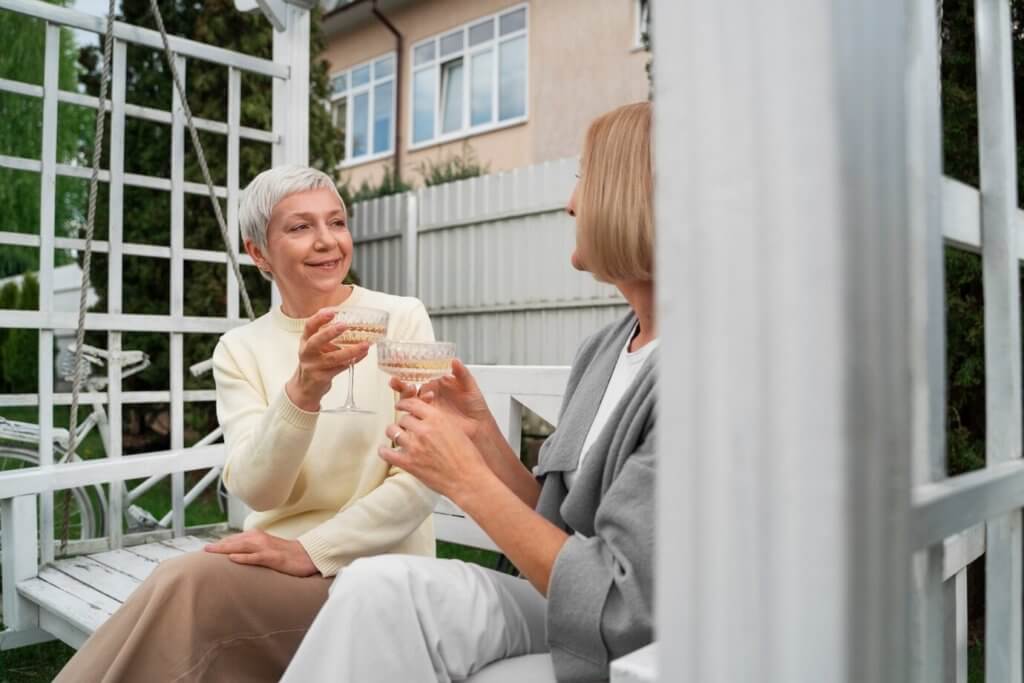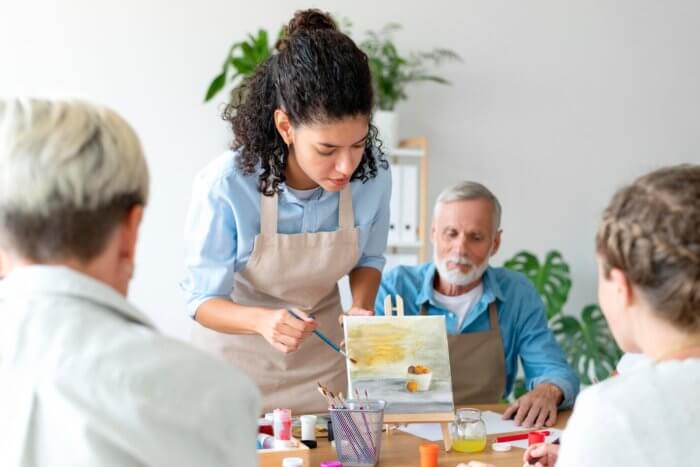Tips on How New Residents Can Adapt to Independent Living

Adapting to Independent Living: Tips for New Residents
Adapting to independent living with MD Senior Living means embracing change, exploring new experiences, and creating a fulfilling environment for new residents. While this transition may bring excitement and uncertainty, personalizing your space, engaging in community activities, and prioritizing your health can make the journey smoother. Building connections with fellow residents fosters support and friendship, helping you feel at home. What steps can you take today to start your new life with MD Senior Living?
Embracing Change and New Experiences
Embracing change can feel intimidating, but it’s also an opportunity for growth and new experiences that enrich your life. By embracing uncertainty, you open yourself to discovering passions you might not have known existed. Shifting to independent living allows you to explore new hobbies, meet diverse people, and engage in community activities that align with your interests. Remember, feeling apprehensive is okay; every new beginning comes with challenges. Surrounding yourself with supportive peers can ease this shift, creating a network that encourages personal growth. Immerse yourself in art classes or join a gardening club—each experience helps you build confidence and fosters connections. Engaging in social interaction opportunities can further enhance your experience, allowing you to connect with others who share your interests. Embrace this chapter with an open heart, and you’ll find it rewarding.
Personalizing Your Living Space
How can you make your new living space feel like home? Start by incorporating decorative touches that reflect your personality. Hang cherished photos, display art you love, or add plants to bring life into your space. These small changes can make a big difference in how you feel.
Next, focus on functional furniture that suits your needs. Choose pieces that fit your style and serve a purpose, like a cozy chair for reading or a table for hobbies. Optimize your layout for comfort and ease of movement, ensuring you can navigate your space confidently. Additionally, personalizing your space with items that have sentimental value can significantly enhance your comfort and sense of belonging.
Engaging in Community Activities
While settling into your new living space, engaging in community activities can significantly enhance your experience and well-being. Independent living examples of social engagement include joining clubs, attending fitness classes, and participating in cultural events. Check the activity calendars regularly to discover events that spark your interest, whether art classes, cooking demonstrations, or volunteer opportunities. Participating in these activities enriches your life and allows you to contribute positively to your community. Don’t hesitate to share your skills or interests; your unique talents can benefit others too. Embrace this chance to build connections, create memories, and enjoy your independence while actively participating in your new community. You’ll find joy in serving others as you engage. Engaging in social activities is crucial for reducing feelings of isolation and enhancing overall mental well-being.
Prioritizing Health and Wellness
Prioritizing your health and wellness is essential for maintaining an active and fulfilling lifestyle as you embrace independent living facility requirements. Start by incorporating nutrition education into your daily routine; understanding balanced diets can significantly enhance your overall well-being. Take advantage of the diverse dining options, ensuring your meals meet your dietary needs. Additionally, develop personalized fitness routines that resonate with your interests. Engaging in yoga, swimming, or walking boosts physical health and fosters mental clarity. Remember, consistency is key. Seek support from wellness programs and fellow residents to stay motivated. By focusing on your health, you’re enhancing your life and setting an inspiring example for others in your community. A well-rounded approach to wellness, including balanced diets, supports your physical and mental health.
Building Connections With Fellow Residents
Engaging with fellow residents enriches your experience of independent living for seniors, adding depth and joy to your daily life. Participate in icebreaker activities that encourage open conversation and laughter to build connections. These initial interactions can lead to meaningful friendships and create a welcoming atmosphere. Consider joining or forming friendship circles where you can share experiences and support each other. Attend social events and communal dining to foster a sense of belonging. Remember, every interaction is an opportunity to connect and learn from one another. You enhance your life and contribute to a vibrant, supportive community by actively engaging with your neighbors. Embrace these moments—they’re valuable steps toward a fulfilling, independent living journey.
As you navigate this new chapter with MD Senior Living, consider your journey as planting a garden. Each experience, from personalizing your space to nurturing friendships, is a seed that will grow into a vibrant community. Embrace change, let your passions bloom, and prioritize your well-being. By fostering connections and engaging in activities, you’ll cultivate a supportive environment where you can thrive. Remember, every step you take adds color and life to your independent living experience. If you have any questions or need assistance, please contact us at 480-418-9150.







Leave a Comment